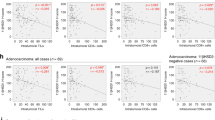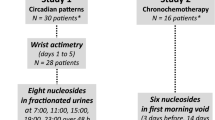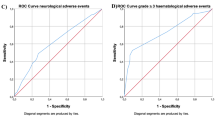Abstract.
Purpose: The activity of dihydropyrimidine dehydrogenase (DPD) – the rate-limiting enzyme in fluorouracil (5-FU) catabolism – has been reported to vary according to the time of day. On the basis of this data, so-called chronomodulated chemotherapy regimens with variable-rate infusions of 5-FU have been investigated in the treatment of advanced colorectal cancer. Recent results suggest lower toxicity of 5-FU by chronomodulated application. However, the pattern of circadian DPD activity levels have been shown to vary considerably. Methods: We, therefore, studied the circadian changes in mRNA expression of DPD in leukocytes of ten patients with advanced gastrointestinal carcinomas prior to chronomodulated 5-FU-based salvage therapy and in 5five healthy controls. Simultaneously, we measured serum cortisol levels (SCL) to evaluate the endogenous circadian hormone rhythm. Results: SCL displayed a consistent circadian rhythm with the mean peak value of serum cortisol at 8 a.m. and the mean trough value at 11 p.m. both in patients and in controls. However, mean minimum-maximum serum cortisol differences of SCL were significantly lower in patients compared to controls. In the 5fivehealthy controls, a trend towards a circadian rhythm of DPD mRNA expression was observed with the peak of expression at 5 a.m. which was significantly different from the trough at 2 p.m. (P<0.005 Mann-Whitney-Wilcoxon test). When each control was studied separately, only two individuals showed circadian variations that could be fitted to a cosine wave (P=0.001, P=0.014, Cosinor analysis). In contrast, DPD mRNA expression in patients with advanced gastrointestinal carcinomas did not demonstrate any consistent circadian rhythm. Pairwise comparisons of groups of DPD mRNA levels at different times of the day did not show significant differences. Conclusions: In conclusion, our analysis of DPD mRNA expression in leukocytes from healthy controls demonstrates first evidence for a circadian DPD mRNA expression periodicity. In patients with advanced gastrointestinal carcinomas, however, this rhythm seems to be disturbed although circadian endogenous cortisol secretion pattern is maintained.
Similar content being viewed by others
Author information
Authors and Affiliations
Additional information
Electronic Publication
Rights and permissions
About this article
Cite this article
Raida, .M., Kliche, .KO., Schwabe, .W. et al. Circadian variation of dihydropyrimidine dehydrogenase mRNA expression in leukocytes and serum cortisol levels in patients with advanced gastrointestinal carcinomas compared to healthy controls. J Cancer Res Clin Oncol 128, 96–102 (2002). https://doi.org/10.1007/s00432-001-0309-y
Received:
Accepted:
Issue Date:
DOI: https://doi.org/10.1007/s00432-001-0309-y




